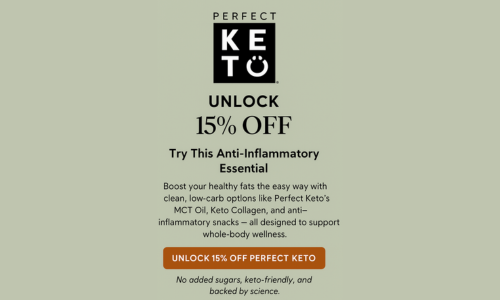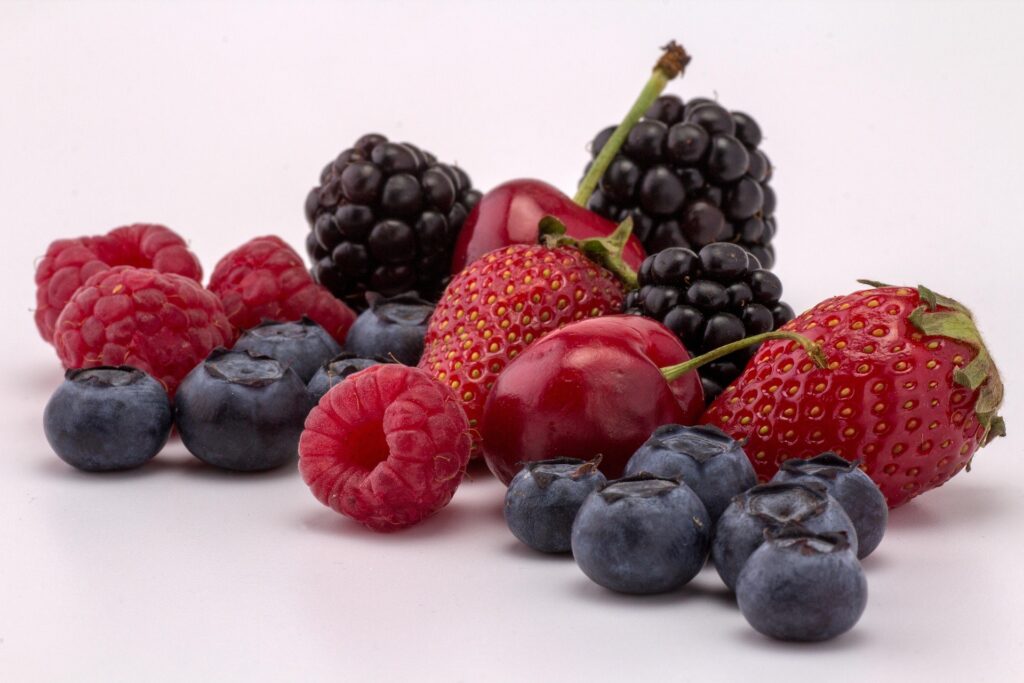This site may contain links to affiliate websites, and I may earn a commission for any purchases made through those links at no additional cost to you.

🌿 Eat to Heal: Ultimate Anti-Inflammatory Food Guide
Discover the ultimate anti-inflammatory food guide. Learn which foods help reduce chronic inflammation, why they’re good for your body, and how to eat to heal naturally.
What Is Inflammation—and Why Does It Matter?
Inflammation is your body’s natural defense mechanism against injury, toxins, or infection. While acute inflammation like a swollen ankle or a sore throat is part of healing, chronic inflammation is a silent threat. It’s been linked to conditions like type 2 diabetes, heart disease, arthritis, Alzheimer’s, and even cancer.
Fortunately, your diet plays a major role in managing and preventing chronic inflammation. By choosing the right foods, you can support your immune system, reduce pain, and boost long-term health.
Why Choose an Anti-Inflammatory Diet?
An anti-inflammatory eating pattern emphasizes whole, unprocessed, plant-rich foods. It’s similar to the Mediterranean diet, known for reducing inflammation markers like C-reactive protein (CRP). This type of diet helps by:
- Supporting gut health
- Regulating blood sugar
- Balancing omega-3 and omega-6 fats
- Providing antioxidants to fight cellular damage
Now, let’s break down the best anti-inflammatory foods and why they work.
Top Anti-Inflammatory Foods (And Why They’re Good for You)
Leafy Greens (Spinach, Kale, Swiss Chard, Collards)
Rich in vitamin K, magnesium, folate, and polyphenols, leafy greens are inflammation-fighting powerhouses. They support detoxification and protect against oxidative stress.
Eat them sautéed with olive oil, added to smoothies, or used as a salad base.

Berries (Blueberries, Strawberries, Raspberries, Blackberries)
Loaded with antioxidants like anthocyanins, berries reduce inflammation and protect brain function.
Frozen berries are just as nutritious—perfect for smoothies or oatmeal.
Fatty Fish (Salmon, Sardines, Mackerel, Anchovies)
High in omega-3 fatty acids like EPA and DHA, fatty fish lower inflammatory markers and improve heart and brain health.
Aim for 2 to 3 servings per week. Choose wild-caught when possible.
Pro Tip: Want an easy way to boost your healthy fats and reduce inflammation on the go?
Try Perfect Keto’s MCT Oil or Keto Collagen — made with clean ingredients, no added sugars, and designed to support a low-inflammation lifestyle.
Turmeric with Black Pepper
Turmeric contains curcumin, a compound with strong anti-inflammatory and antioxidant properties. Black pepper boosts its absorption significantly.
Use in soups, rice, roasted veggies, or golden milk.
Extra Virgin Olive Oil
Olive oil is rich in healthy monounsaturated fats and oleocanthal, which has effects similar to ibuprofen.
Drizzle on salads, roasted vegetables, or whole-grain dishes.
Nuts and Seeds (Almonds, Walnuts, Chia Seeds, Flaxseeds)
These are full of healthy fats, fiber, magnesium, and plant-based omega-3s. They help lower CRP levels and improve heart health.
A small handful of raw, unsalted nuts makes a great anti-inflammatory snack.
Whole Grains (Oats, Quinoa, Brown Rice, Buckwheat)
Unlike refined carbs, whole grains are high in fiber and nutrients that stabilize blood sugar and reduce gut inflammation.
Pair with beans and vegetables for a nourishing bowl.
Legumes (Black Beans, Chickpeas, Lentils)
Legumes are rich in plant-based protein, fiber, folate, and polyphenols. They support gut health and help regulate inflammation.
Add to salads, soups, or mash into veggie patties.
Cruciferous Vegetables (Broccoli, Cauliflower, Brussels Sprouts)
These contain sulforaphane, a compound that reduces inflammation and supports detox pathways.
Roast them with garlic and olive oil for a flavorful side dish.
Garlic and Onions
Packed with anti-inflammatory compounds like allicin and quercetin, these support immune health and reduce inflammation.
Use them daily in soups, stir-fries, and sauces.
Green Tea
Green tea contains EGCG, a powerful antioxidant that helps reduce inflammation and improve brain health.
Swap one cup of coffee for green tea for added benefits.
Avocados
Avocados are full of heart-healthy fats, potassium, fiber, and phytochemicals. They help lower markers like IL-6 and CRP.
Enjoy half an avocado with lemon juice and a pinch of salt.
Pro Tip: Want an easy way to boost your healthy fats and reduce inflammation on the go?
Try Perfect Keto’s MCT Oil or Keto Collagen — made with clean ingredients, no added sugars, and designed to support a low-inflammation lifestyle.
Tomatoes
Tomatoes are high in lycopene, an antioxidant linked to lower inflammation and cancer risk. Cooking enhances its availability.
Use in stews, soups, and sauces with olive oil.
Dark Chocolate (70 percent or higher)
Dark chocolate contains flavonoids that help reduce inflammation and support cardiovascular health.
Choose options with minimal added sugar and enjoy in moderation.
Foods That Trigger Inflammation
Reducing or avoiding certain foods is just as important as eating the right ones. These common culprits contribute to chronic inflammation:
- Refined carbohydrates like white bread and pastries
- Sugar-laden snacks and beverages
- Processed meats such as bacon and sausage
- Fried foods
- Trans fats and hydrogenated oils
- Excessive alcohol
Removing these from your diet can significantly improve your health.
Bonus Tips to Boost Your Anti-Inflammatory Diet
Prioritize Color
Eat the rainbow. Brightly colored fruits and vegetables are packed with antioxidants and anti-inflammatory compounds.
Stay Hydrated
Drinking water helps flush out toxins. Herbal teas like ginger or turmeric tea offer added benefits.
Mind Your Gut
Probiotic foods such as yogurt, kefir, kimchi, and sauerkraut promote a healthy gut, which plays a role in regulating inflammation.
Spice It Up
Use anti-inflammatory spices like turmeric, ginger, and cinnamon frequently in your meals.
Practice Meal Timing
Avoid overeating and late-night meals. Give your digestive system time to reset between meals.
Beyond Food: Lifestyle Tips That Help Fight Inflammation
While nutrition is key, lifestyle habits also influence inflammation. Make these part of your routine:
- Get 7 to 8 hours of quality sleep each night
- Exercise regularly, even light activity like walking
- Manage stress through mindfulness, meditation, or deep breathing
- Limit exposure to environmental toxins by choosing clean products and filtered water
Sample Anti-Inflammatory Meal Plan (One Day)
Breakfast:
Chia pudding made with almond milk, topped with berries, walnuts, and a dash of cinnamon
Lunch:
Quinoa salad with chickpeas, leafy greens, cherry tomatoes, olive oil, and fresh lemon juice
Snack:
A handful of almonds with a cup of green tea
Dinner:
Grilled salmon served with roasted broccoli and sweet potatoes, seasoned with turmeric and garlic
Dessert:
A square of dark chocolate with a warm herbal tea
Final Thoughts: Heal Your Body One Bite at a Time
Shifting to an anti-inflammatory lifestyle doesn’t require perfection. By gradually replacing processed foods with nutrient-rich, whole ingredients, you support healing from within and protect yourself against chronic disease.
Whether your goal is to improve your energy, ease joint pain, or support overall health, eating to heal is one of the most powerful and sustainable steps you can take.
📚 Recommended Reading to Deepen Your Healing Journey
Explore these expert-backed guides to help you fight inflammation through food and lifestyle:
Disclaimer
The information provided in this blog post is for educational and informational purposes only and is not intended as medical advice. Always consult with a qualified healthcare provider or registered dietitian before making any significant changes to your diet, especially if you have a medical condition, are pregnant, or are taking medications. The foods and lifestyle tips mentioned in this guide are based on current nutritional research and are intended to support overall wellness, not replace professional medical treatment or diagnosis.




